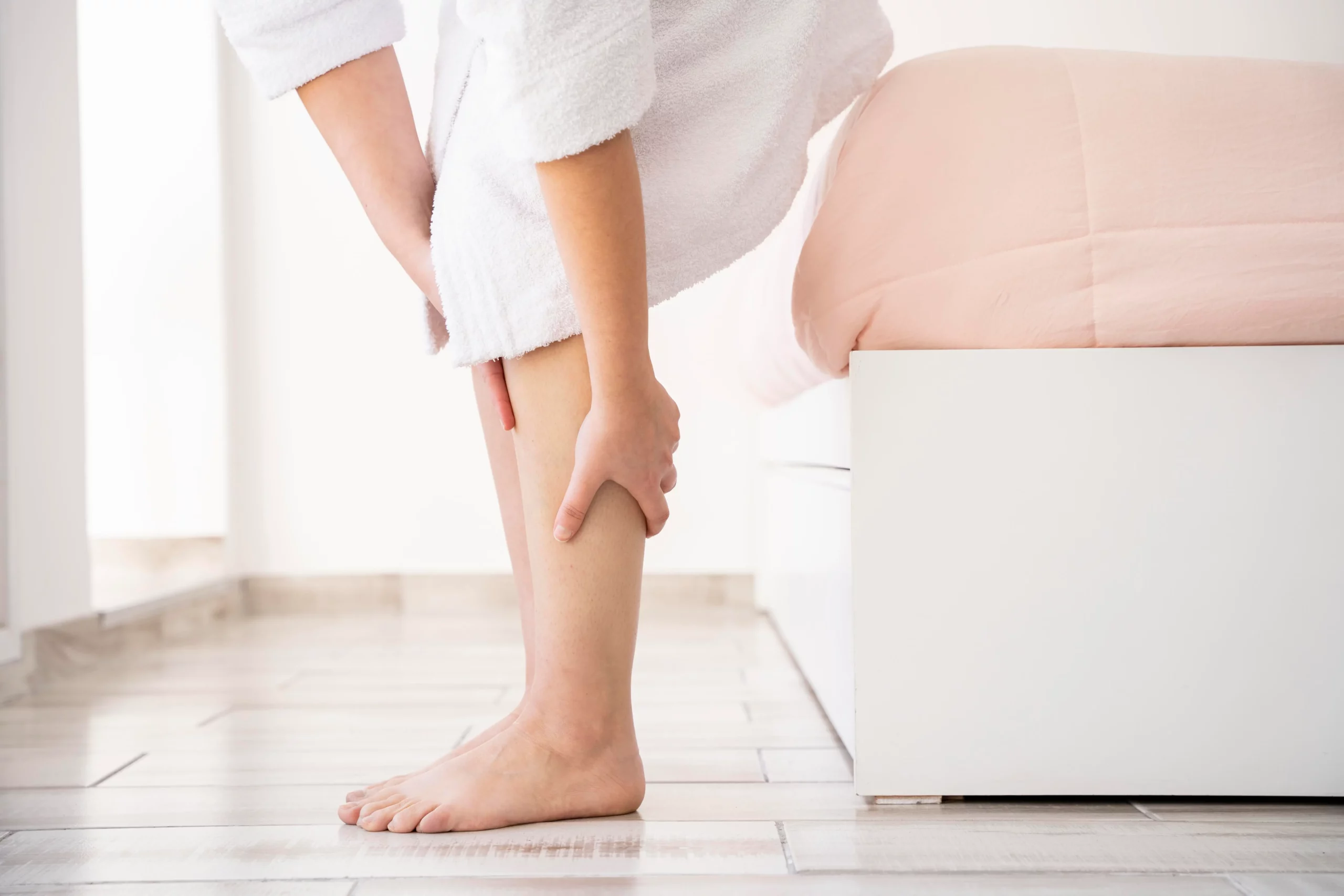
17 Jul What Are The Varicose Veins Of Pregnancy?
You may notice small red or blue or purple veins that are swollen in your legs, especially in the third trimester of your pregnancy, don’t worry! These are called varicose veins and they occur normally as a common condition during pregnancy.
Varicose veins are twisted, large veins in the legs, which appear on the inside of the legs or back of the calves, and they cause:1
- Swelling in the feet or ankles.
- Aching and throbbing in the legs.
- Heaviness in the legs.
- Leg cramps.
Why Do Varicose Veins Happen During Pregnancy?
Varicose veins can be found in the legs, ankles, and external genital area (vulva). They can also be found in the rectum, which is called hemorrhoids. Varicose veins occur when the walls and valves of your veins become weak, causing blood to pool in your veins. This leads to swollen veins that rise up from the surface of your skin.2
Pregnant women can develop varicose veins due to changes in hormone levels and the weight of their baby. This is because:
- High levels of progesterone can relax blood vessel walls and decrease valve function.
- The volume of blood in the body increases during pregnancy.
- Changes in blood flow in the pelvic region and legs occur due to pressure on blood vessels caused by the baby.
- Constipation, a common condition in pregnancy, can cause hemorrhoids
Other factors may increase your risk of developing varicose veins during pregnancy, such as:2
- Eating too much sodium.
- Not eating enough fiber or water.
- A family member such as a mother or grandmother also had them.
- Varicose veins are more common with obese.
Should I Be Worried About Varicose Veins During Pregnancy?
Varicose veins during pregnancy aren’t dangerous or serious, and if treatment is needed it can wait until after delivery, but some women may have blood clots near the skin surface, which can cause pain, and you should see a doctor if there are signs of:2,3
- Bleeding from the vein.
- Open sore or ulcer on the skin near the varicose vein.
- Pain, swelling, and redness in your leg.
- The skin near the veins changes its color.
How To Treat Varicose Veins During Pregnancy?
Generally, varicose veins don’t need to be treated unless when they cause pain and discomfort, but you can make some life adjustments to treat or prevent varicose veins during pregnancy, by doing things that increase your blood circulation such as:1,2,4
- Exercise regularly.
- Raise your legs when you are sitting.
- Don’t wear tight clothes around your waist or thighs.
- Shift your weight between your feet regularly while you’re standing.
- Don’t sit with your legs crossed.
- Sleep on your left side.
- Wear maternity compression socks.
- Drink a lot of water, eat plenty of fiber to stop constipation, and decrease salt intake.
- Avoid wearing high heels.
Do Varicose Veins Go Away After Pregnancy?
Yes, Varicose veins usually improve on their own within a few months after delivery. However, in some cases, they may persist or become more severe with each subsequent pregnancy, but In some cases, varicose veins may persist or worsen after pregnancy. This may be due to a combination of factors, including genetics, age, weight gain, and lifestyle habits such as prolonged standing or sitting. Treatment options for varicose veins include compression stockings, lifestyle modifications, and minimally invasive procedures such as endovenous laser therapy or sclerotherapy. It is important to consult with a healthcare provider to determine the best course of treatment for your individual situation.2,3
References:
- https://www.webmd.com/baby/varicose-veins-in-your-legs-during-pregnancy#091e9c5e823cadbe-2-8
- https://my.clevelandclinic.org/health/diseases/23331-varicose-veins-in-pregnancy
- https://www.babycenter.com/pregnancy/your-body/varicose-veins-during-pregnancy_271#are-varicose-veins-in-pregnancy-ever-serious
- https://www.pregnancybirthbaby.org.au/varicose-veins#causes
